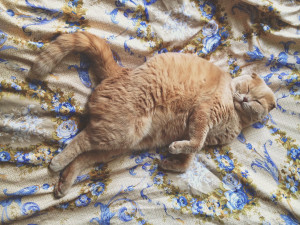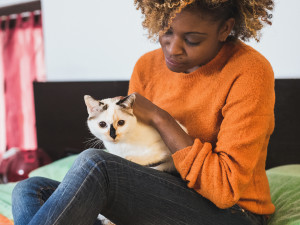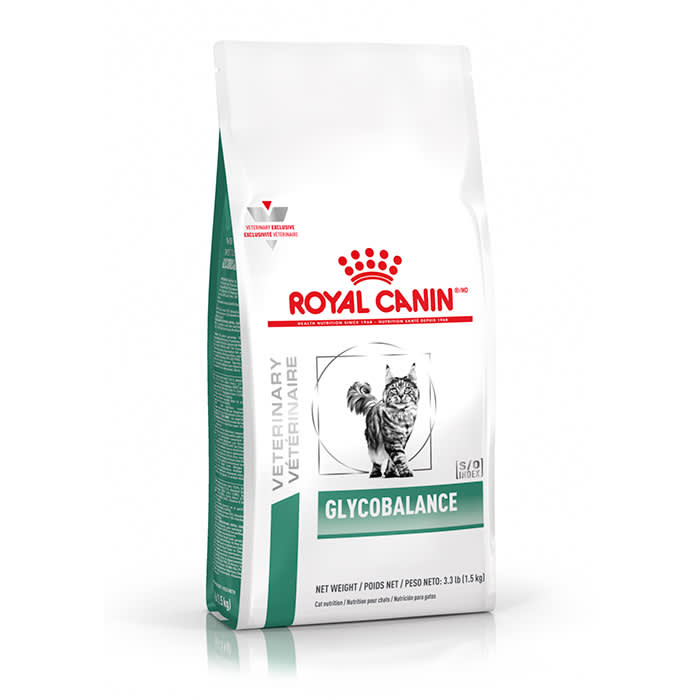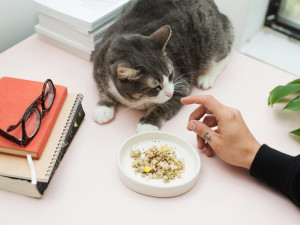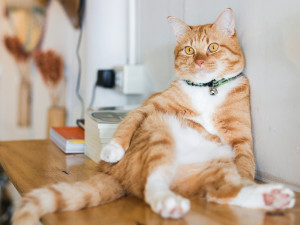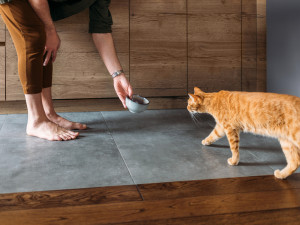Does Your Diabetic Cat Need a Special Diet?
Get ready for a sigh of relief — this food doesn’t have to be pricey.
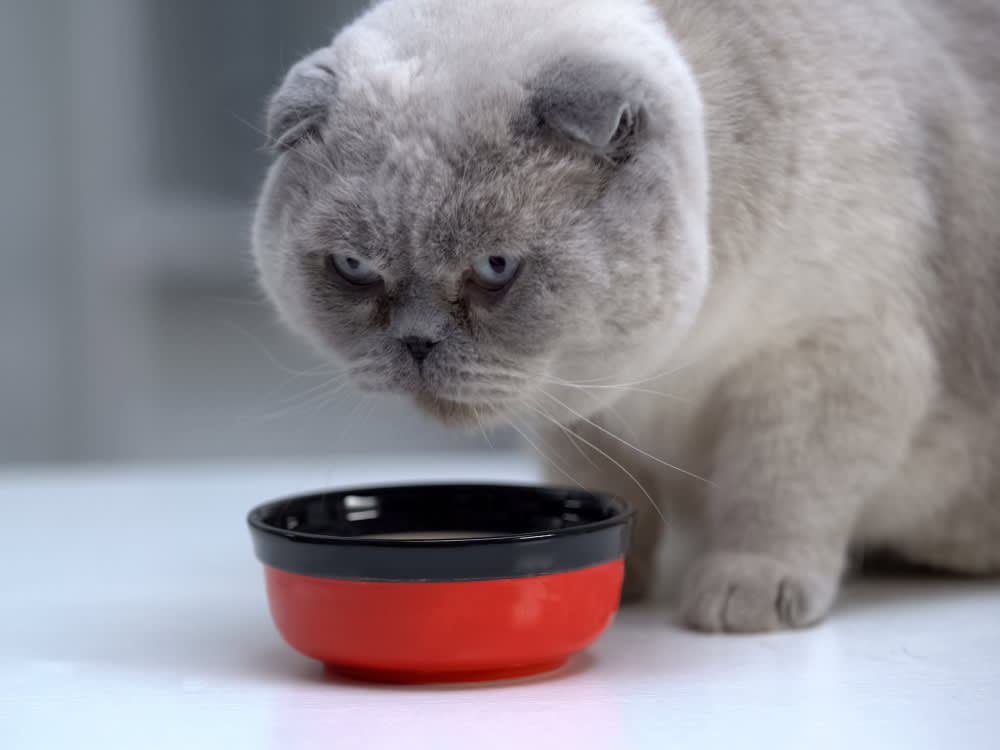
share article
As cats age and/or gain weightopens in a new tab, they become at higher risk for diabetes. If your cat has been diagnosed with diabetes, don’t panic; though it’s always hard to see your best furry friend feeling sick, diabetes is manageable with the right tools. As Dr. Alycia Washington points out, “Cats with Type II diabetes mellitus can go into remission with proper treatment. Remission of disease has been reported in approximately 30 percent of cases with treatment, so early diagnosis and appropriate treatment can make a big impact.“
Below are some of the options available for diabetic cats, plus a little more info on what exactly you’re dealing with.
What are the early signs of diabetes in cats?
“Diabetes usually presents itself in middle-aged-to-senior cats,” says Dr. Bruce Kornreich, the director of the Cornell Feline Health Centeropens in a new tab. If you notice your cat showing signs of increased thirst and urination, ravenous appetite, and/or weight loss, you should talk to your veterinarian about checking your cat’s blood glucose levels. Because diabetes affects many organ systems in the body, it’s best not to leave it untreated. Dr. Kornreich adds, “Uncontrolled diabetes is associated with poor outcomes.”
If you have an outdoor cat, or one who is in the early stages of the disease, these symptoms may go entirely unnoticed. The best way to stay apprised of your cat’s health is to pay attention to the frequency with which they use the litter boxopens in a new tab, as well as the amount of times you have to refill their water bowl every week. (If your cat has been drinking out of the faucet, that could also be a sign of increased thirst, which is a symptom of the disease.) An easy way to do this is to make a note of the number of times they’ve urinated when scooping the litter box daily. That way, you’ll be able to point to quantifiable data when describing your cat’s new behaviors to your veterinarian.
How is diabetes in cats treated?
Cats with diabetes need to be treated with a combination of insulin and diet. “Diet will help in terms of maintaining the appropriate weightopens in a new tab,” Dr. Kornreich says, and the right diet will be beneficial for your cat’s metabolism. A cat’s diabetes can go into remission, which means that insulin would not need to be administered further.
Some medications, like corticosteroids, can also cause predispositions to diabetes in cats, so reducing your cat’s intake of these drugs can help prevent them from developing the disease. Monitoring your cat’s health, such as blood glucose level and weight, can also help stabilize them after their initial diagnosis.
What is the appropriate diet for a diabetic cat?
Your vet may prescribe a therapeutic diet for your cat, but you don’t necessarily have to stick to that — though you should always discuss your other options with your vet. There are suitable canned and dry options available both by prescription and over the counter. “Some people think diabetic cats can’t eat dry food,” Dr. Kornreich says. “That’s not true.”
While prescription diets and homemade mealsopens in a new tab are ideal for managing your cat’s diabetes, they may be more expensive. It’s possible to find the right diet over the counteropens in a new tab, but discuss your options with your vet first. According to Dr. Kornreich, the food should be low in carbohydrates (less than 12 percent), but moderate-to-high in proteinopens in a new tab (greater than 40 percent).
Is there anything you can do to prevent diabetes in cats?
“The most important thing is to not let your cat get overweightopens in a new tab or obese,” Dr. Kornreich says. “We know that cats who are overweight are predisposed to developing diabetes.” While a chonky cat might have more for us to love, they may end up suffering unnecessarily in the long run.

Helin Jung
Helin Jung is a writer in Los Angeles.
Related articles
![overweight orange cat]() opens in a new tab
opens in a new tabHow Much Should You Actually Be Feeding Your Cat?
If they’ve lost their hourglass figure, then not that much — according to a veterinary nutritionist.
![Woman petting her cat]() opens in a new tab
opens in a new tabDon’t Come For Us, But Is Your Cat Overweight?
We love a chonky cat, but here’s what you should know.
![Close up view of a person's hand feeding a gray cat with food]() opens in a new tab
opens in a new tabDoes Your Cat Really Need to Go Grain-Free?
You’ve got questions. Dr. Bruce Kornreich, director of the Cornell Feline Health Center, has answers.
![A fat cat lounging on a shelf.]() opens in a new tab
opens in a new tabHow Tech Helps Cats Lose Weight
A study found that smart feeders and digital scales are successful tools in cat weight-loss programs.
![Profile view of a man giving a cat food to eat]() opens in a new tab
opens in a new tabWhy Is My Cat Not Eating? Causes, Symptoms, and Treatment
A veterinary nutritionist explains why your cat isn’t eating and how to increase their appetite.

